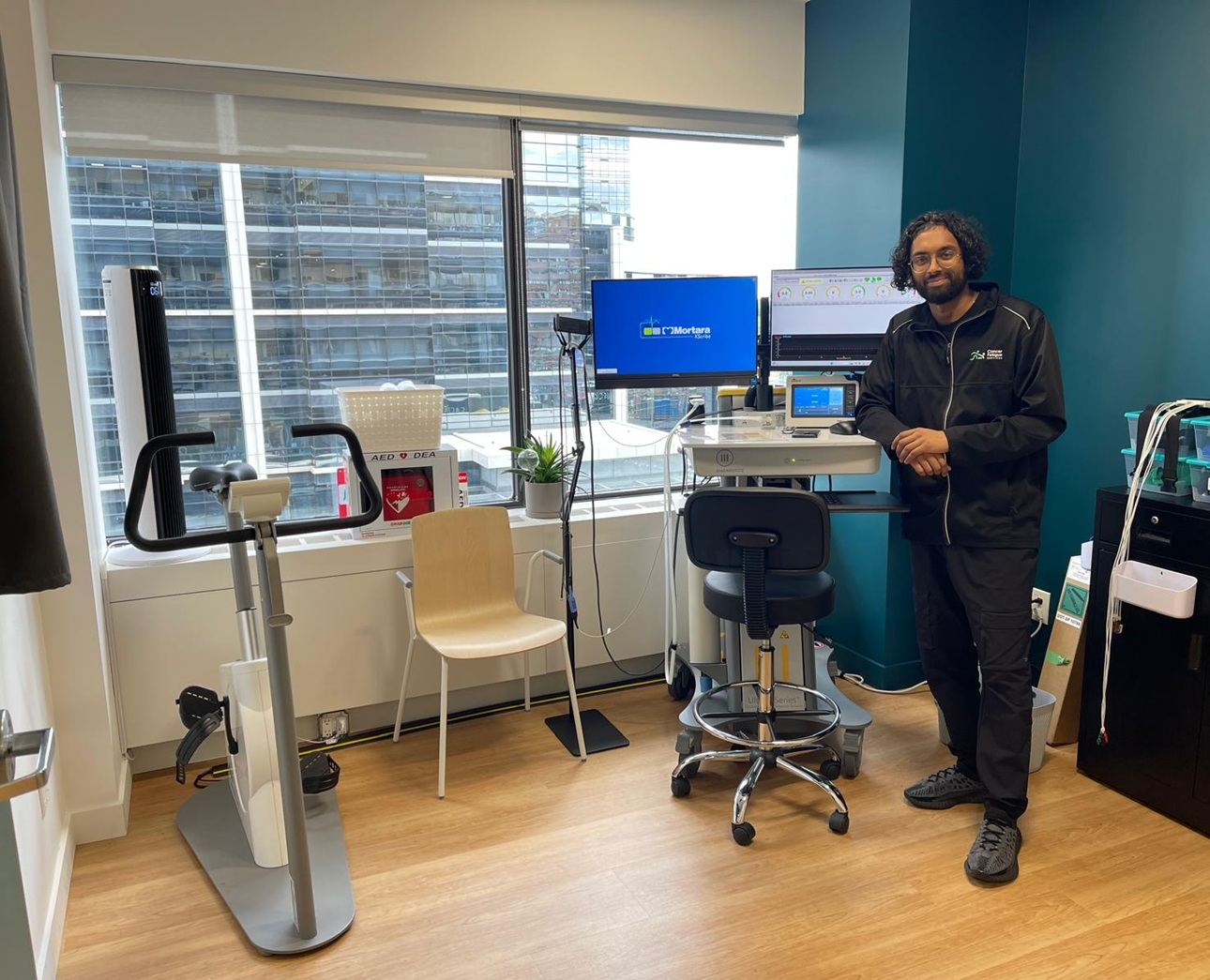
Healthcare Providers
Clinician’s Perspective: Matthew Dhanushan, Clinical Exercise Physiologist
Written by: Matthew Dhanushan BSc, CEP
Before joining the Cancer Fatigue Services team, my professional path was grounded in work physiology and sport performance. With a bachelor’s and master’s degree in Fitness Science from York University, much of my early academic and professional work focused on understanding the physical demands of jobs and relating it to human capabilities for injury prevention and risk reduction. I spent years analyzing how different tasks—like lifting, pulling, carrying, etc.—translate into real-world physiological demands, which helped me develop a strong applied lens for interpreting human performance.
This same lens has proven surprisingly relevant in the oncology space. Whether someone is carrying a firehose up stairs or simply bringing in groceries from the car, every activity demands energy—oxygen, metabolism, and endurance. When these systems are impaired, even basic daily tasks can feel overwhelming. This is one of the areas where cancer-related fatigue (CRF) becomes such a critical, yet under-addressed challenge.
When I started working at Cancer Fatigue Services, I’ll be honest—I didn’t know much about oncology. Beyond some chronic disease coursework in school, I had little exposure to the world of cancer care. I knew cancer-related fatigue was a common symptom, but I didn’t realize the scope or depth of its impact. I’ve since come to understand just how pervasive and debilitating cancer-related fatigue can be—and how limited the resources are to help people navigate it. It’s a common experience among cancer survivors, yet there are many challenges with accessibility of these resources to help address the problem.
What motivates me today is the opportunity to be part of a truly innovative solution. Our team is leading Canada’s first dedicated medical care service for cancer-related fatigue. One of the biggest problems in healthcare is inequitable access and a lack of resources, and being a part of Cancer Fatigue Services has given me the opportunity to help address this issue by improving access and striving to provide compassionate care. Even more compelling is the fact that the most effective intervention to cancer-related fatigue is also one of the most misunderstood: exercise. It seems paradoxical—how could someone exhausted from cancer and treatment benefit from physical activity when it’s often exhausting to even move? But the science is clear: exercise is the most evidence-based treatment for CRF, outperforming medications, injections, and even rest in many cases.
This role has given me new purpose. I’m driven by a commitment to help people reclaim their energy, their confidence, and their lives. My goal is to educate, empower, and make a meaningful difference for those facing the invisible weight of cancer-related fatigue.
We’re not just treating fatigue—we’re striving to restore hope.

Tired of being tired?
Contact us today
Do not accept being fatigued as part of your ‘new normal’. Book your free and no-obligation consultation with our Customer Care Team to learn more about how we can help address your cancer fatigue-related concerns.
647-948-8118
More Articles
Community & Advocacy
Advocacy Doesn’t Need a Cape
Inspirational Stories
From Exhausted to Empowered: How I Took My Life Back
This story reminds us: surviving cancer is just the beginning. Healing takes time, support, and understanding.





